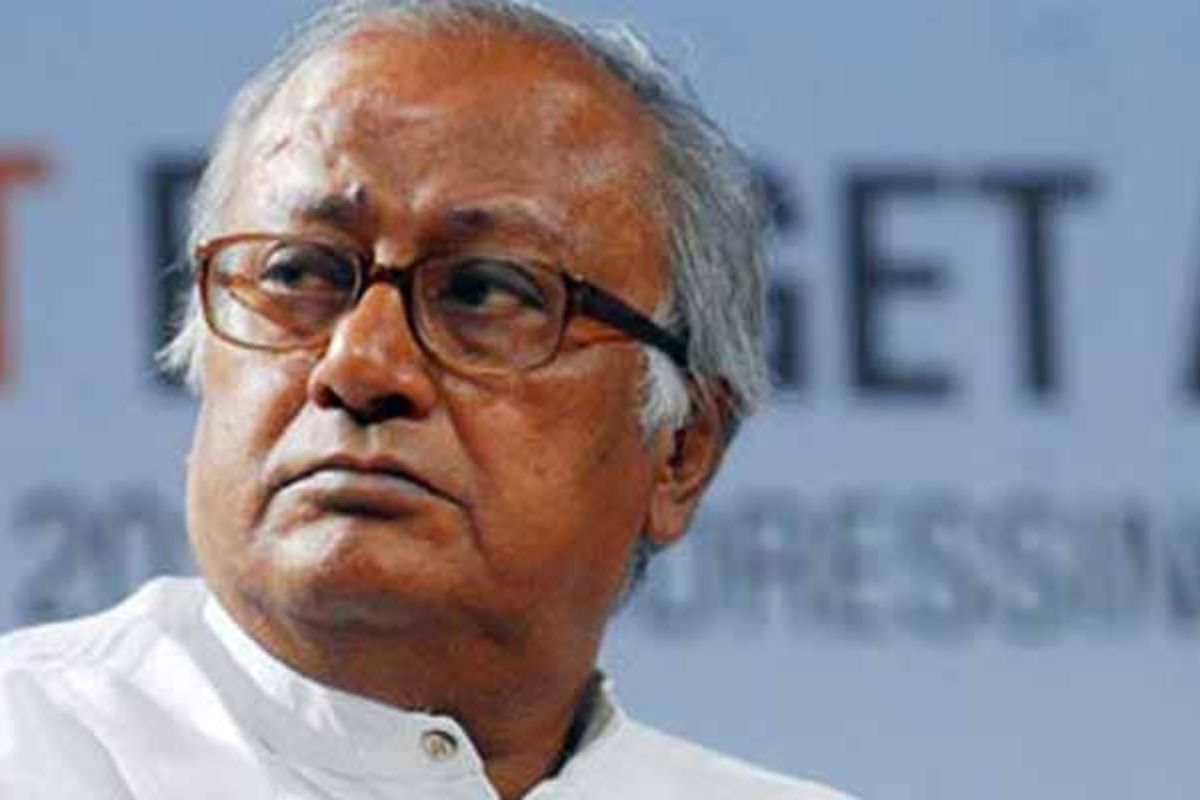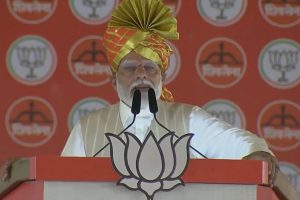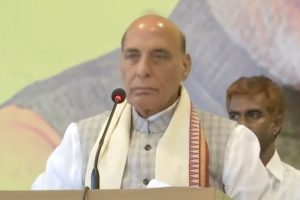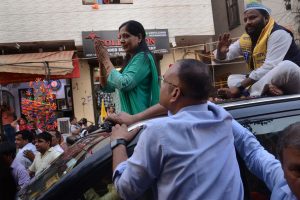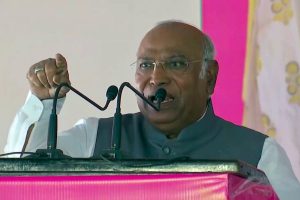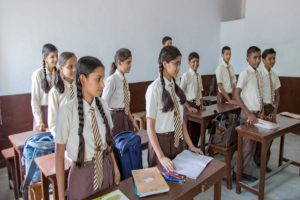Trinamul Member of Parliament from the Dum Dum constituency, Prof Saugata Roy was one of the 50 senior party leaders to have been hand- picked by West Bengal chief minister Mamata Banerjee to campaign in the rural areas before the panchayat elections today. The Statesman’s Dola Mitra caught up with the veteran politician as he returned to Kolkata from the final tour of the villages three evenings before polling began. Exhausted but elated he spoke about why he is confident that that his party will steamroll the competition to emerge victorious not just in these elections but the Parliamentary elections next year.
Excerpts
Q: After weeks of campaign- ing in the villages of West Bengal, what is your assessment of the situation on the ground as far as Trinamul and the party’s political competition is concerned?
A: There is hardly any competition at all. The other political parties don’t have any significant presence on the ground. Only in a few places did I see some wall graffiti, banners and posters of the BJP or the Left parties but these were too few to be counted and I found no remarkable attempt by these parties to reach out to the rural people in order to try to understand their issues and con- cerns. It is amply clear from the recent visits to the constituencies that Trina- mul has won the hearts and minds of the rural people.
Q: You mentioned the BJP and the Left parties. What about the Congress?
A: I did not come across any cam- paigning attempts by the Congress. It is difficult to assess the reasons for that but it could be related to the Con- gress and the Left parties deciding to work together and to fight the elec- tions together.
Q: Each individual “campaign” has different approaches. What con- stitutes “campaigning” for you?
A: There were two broad aspects to the campaigning. In the first, we high- lighted the progressive, developmen- tal projects and schemes of the Mamata Banerjee government. We pointed out to the public how the Tri- namool government’s contributions benefitted the poor people in the dis- tricts and other rural areas. We espe- cially highlighted the Lakshmi Bhan- dar scheme which has already bene- fitted 2 crore women from poor fami- lies since its inception. In fact, every- where we went, women came out and told us how the Laxmi Bhandar scheme empowered them. The other developmental scheme that we focused on is the Kanyashree pro- gramme, which has already benefit- ted 1 crore girls and women from needy families. We also brought attention to the Sabuj Sathi scheme which has benefitted 1 crore students. We pointed out how the Swasthy Swathy scheme has helped people of different economic groups.
Q: What about the second part?
A: We focused on the neglect meted out to the state of West Bengal by the BJP-led government at the Centre. The Central government has deprived the state of its financial entitlements, for instance. This includes not clearing money for payment of dues to the labourers engaged in the 100-days- work guarantee scheme under the national rural employment act. Mamata gives rice for free but the Modi government charges Rs 1,200 for cooking gas.
Q: What about other issues and future plans for progress and development in rural areas?
A: There are a number of develop- mental projects and the work is in progress. Among the more important ones is the “piped water” scheme in which the homes of the poor people in the districts and villages will receive water in pipelines. The work is going on and it is scheduled to be completed by 2025.
Q: While Mamata Banerjee’s public distribution schemes in the rural areas are popular, a section of the rural electorate, however, say that they would like to give the political party which did not yet have a chance at governing West Bengal (namely BJP) a chance. What are your thoughts on this?
A: Anti-incumbency is not a strong factor in these elections. The BJP had tried to push its communal agenda throughout Bengal and it did not suc- ceed. The number of people who say that they want to give a chance to an alternative is very small.
Q: Then how would you explain the BJP’s gains in terms of both a rise in the number of seats as well as increases in vote shares as indicated by the results of the Parliamentary elections of 2019 and the Assembly elections of 20217
A: BJP is a communal party. It tried its divisive agenda and it took it every- where. It had limited success. But ulti- mately it did not convince the elec- torate of West Bengal.
Q: Didi campaigned in North Bengal’s Cooch district. Trinamul’s All India General Secretary Abhishek Banerjee campaigned in South Bengal’s Nadia district before heading out to other areas. That too after completing a mas- sive two-month long rural-out- reach programme during which time he visited virtually every part of the state. Why is the Trinamul government going all out as far as campaigning for the rural elec- tions is concerned if the impact of the rural developmental project is so positive and the public distribu- tion schemes so popular?
A: We are constantly strengthening our rural base and it is important to stay connected with the people on the ground. The Parliamentary elections are coming up next year. This is also a preparation for that.
Q: How would the Panchayat polls be a preparation for the Parliamentary elections?
A: The results of rural elections are going to give us an indication of the ground.
Q: Please comment on the violence that has taken place during the filing of nomination papers for the Panchayat polls.
A: Trinamul is for “free and fair” elec- tions. A few incidents of violence have occurred and one cannot point to any one political party. However, the scale of violence is much less now than in the past.
Q: Finally, what do you think of the decision made by Didi in the June 23 meeting in Patna to join hands with other Opposition parties to fight the BJP in the 2024 general elec- tions? Will the camaraderie with the Left at the Centre be extend- ed to the state?
A: The decision to unite is an impor- tant step forward. It will strengthen the Opposition’s fight against BJP in the Parliamentary elections next year. The state will not at all be impacted by the decision at the Centre. The Tri- namool is fighting the BJP at the Cen- tre with other Opposition parties to defeat the BJP-led NDA government In the state, the Trinamool does not need the help of the Congress and the Left. It is not trying to defeat the BJP here. Trinamool’s only agenda is to continue to serve the people with its developmental schemes.

